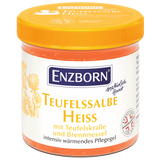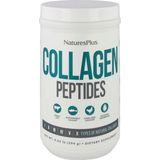Is Fat Really So Bad?
In recent years there have been many different opinions on the subject of fat. In addition, we've seen more and more non-fat products on the market, although fads like the paleo diet and back-to-roots cooking are in. Is fat really so bad?
More and more studies are showing that fats are important for our health. This means that more and more diet gurus encourage a healthy, high-fat diet. These new tips are following decades in which fats were demonized. What should we believe?
Not all fats are equal
To start off with, there are hundreds of fatty acids.Fat cannot simply be lumped together as healthy or unhealthy. We have to take a closer look. Why does the body need fat?
Fats
- are an important nutrient
- are a flavour carrier and make us feel full
- supply energy
- protect our organs
- are part of every cell of the body
- are important for the thermal regulation of the body
- are carrier substances for the vitamins A, D, E and K
Should we be afraid of fat?
Basically, you there's no need to fear fat, but you should watch which fats you consume. In the Western world, most people get too much of the wrong fat and too little of the right fats. But which are wrong or right?
Fatty acids in detail
Fats are divided into several groups, depending on their structure.
Saturated fatty acids: These fatty acids are found in dairy products, meat or about coconut oil. New research shows that saturated fatty acids have important functions in the body. Milk fats such as butyric acid are attributed to an antimicrobial effect, and possibly even play a role in cancer prevention. Other fatty acids of this category regulate the hormones, or are involved in cellular communication and immune function.
Saturated fats can raise bad LDL cholesterol in large quantities as well. No more than 10% of our daily energy should be supplied by these fatty acids.
Monounsaturated fats: olive and canola oil are the best sources for these fats. In combination with vegetables and whole grain products, they are even suitable for losing weight. Monounsaturated fatty acids belong to the "good" fats. They are especially good for us and influence blood lipid levels positively.
Polyunsaturated fatty acids: These fatty acids are converted into tissue hormones that control many important functions in the body such as blood pressure or blood clotting.
Particularly important are omega 3 fatty acids (found in oily fish) and omega-6 fatty acids (found in sunflower oil), which are also known as essential acids. These fatty acids cannot be produced by the body so they must be supplied through diet. Today we often get too little omega-3s and omega-6s.
Trans fats: These fats are a component of finished bakery products. They arise during the chemical hardening of cheap vegetable fats. The trans fats are very unhealthy and do not have any positive qualities. We should consume as little as possible of these fats because they:
- elevate cholesterol
- are bad for blood sugar
- promote inflammation in the body
Conclusion
It may be noted that the human body needs fat to function and to stay healthy. Combined with vegetables, salad and wholemeal products they are an integral part of a healthy diet.
This means you can enjoy fats without regret as long as you pay attention to the correct ratio. Do not eat too many saturated fats and get more omega-3s and less omega 6s. Avoid trans fats. The rest is up to you!
Latest reviews
-
 5.0 (1)
5.0 (1)ENZBORN Pretty Feet Cream, 75 ml
-6%- Cream-gel consistency
- With urea, hawthorn, jojoba oil & allantoin
- Absorbs quickly & does not stick
€ 5,51 € 5,89 (€ 73,47 / l)Delivery by April 17
-
 5.0 (4)
5.0 (4)ENZBORN Icy Devil's Salve, 200 ml
- Moisturizes
- Cooling & refreshing
- Can be used with insect bites
€ 8,09 (€ 40,45 / l)Delivery by April 17
-
 € 8,09 (€ 40,45 / l)
€ 8,09 (€ 40,45 / l)Delivery by April 17
-
 4.7 (3)
4.7 (3)NaturesPlus Collagen Peptides, 294 g
- 6 different types of collagen
- Sustainably obtained raw materials
- With an enzyme mixture
€ 38,99 (€ 132,62 / kg)Delivery by April 17
